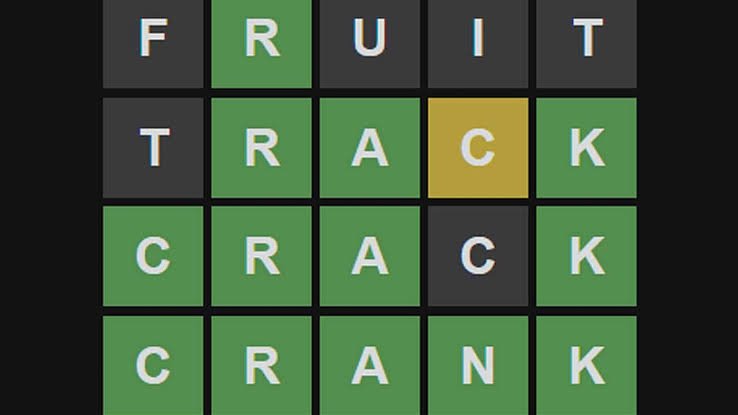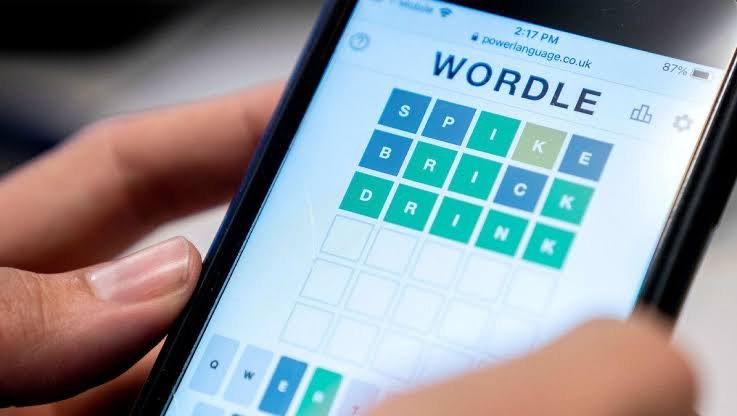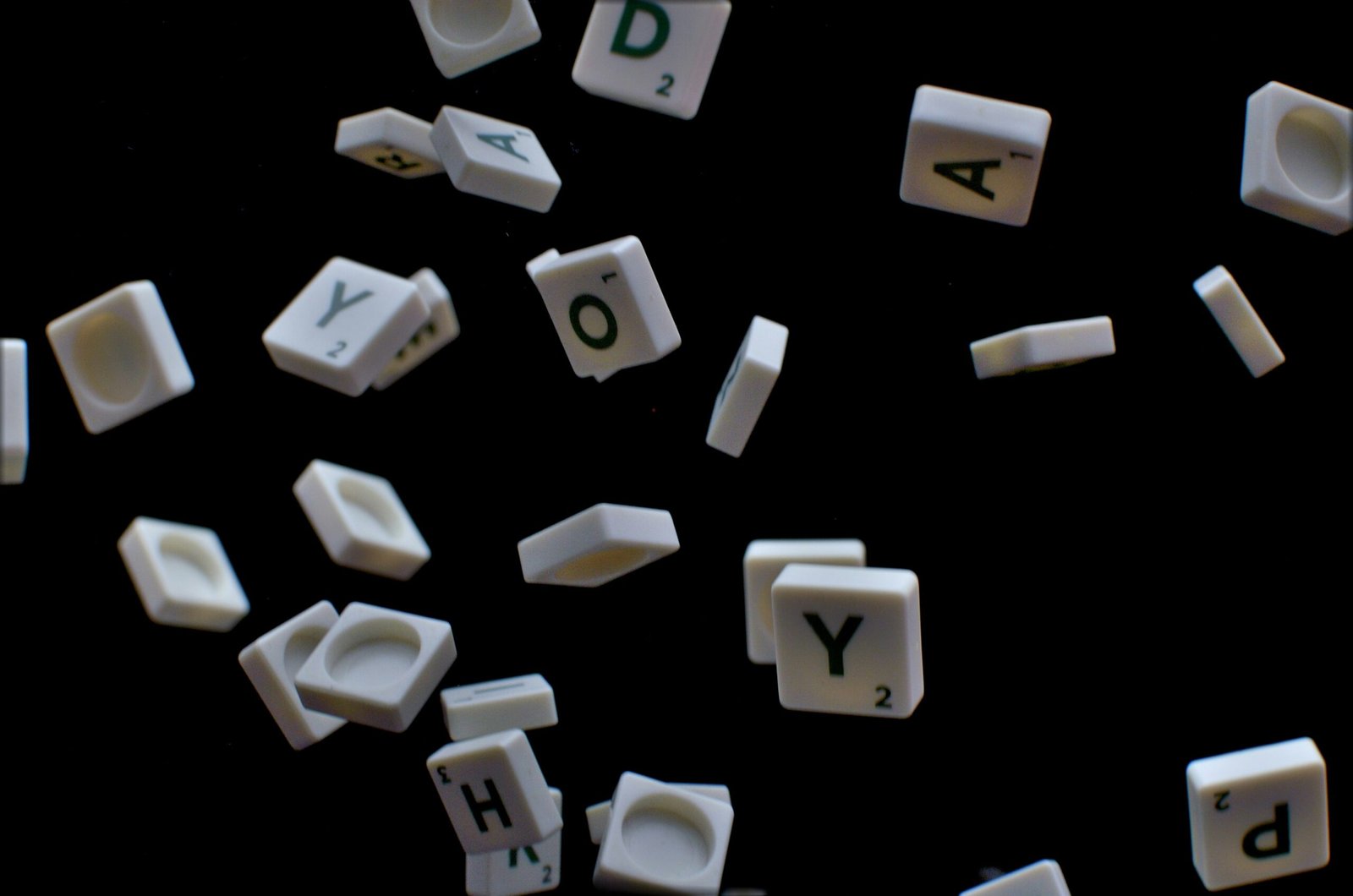Introduction to bad wordle to spoil answer
Wordle, an online word puzzle game, has rapidly garnered a massive following since its inception. The game’s mechanics are deceptively simple yet highly engaging: players have six attempts to guess a five-letter word, receiving feedback in the form of colored tiles to indicate correct, misplaced, or incorrect letters. This straightforward approach has made Wordle accessible and appealing to a broad audience, from casual gamers to ardent word enthusiasts.
The game’s rise in popularity can be attributed to several factors. First, its minimalistic design and ease of play ensure that anyone can dive in without a steep learning curve. Second, the daily puzzle format encourages regular engagement, creating a routine that players look forward to. Additionally, the game’s shareable nature has played a significant role in its viral success. Players often post their results and strategies on social media platforms, fostering a sense of community and friendly competition. This visibility has not only brought in new players but also kept existing ones engaged.
Wordle has also become a cultural phenomenon, with its influence extending beyond the game itself. It has inspired numerous spin-offs and imitations, each attempting to capture a slice of its success. The game has prompted discussions about language, strategy, and even the psychology of puzzle-solving. In this interconnected digital age, Wordle’s blend of simplicity and social interaction has resonated deeply, making it a staple in the daily lives of many.
However, with its rapid rise, there have also been challenges and ethical considerations, particularly concerning the use of bad wordle to spoil answers. This behavior not only undermines the integrity of the game but also affects the communal experience that Wordle aims to foster. Understanding these dynamics is crucial as we delve deeper into the implications of such actions in subsequent sections.
What is ‘Bad Wordle’?

‘Bad Wordle’ refers to the deliberate act of revealing the daily Wordle puzzle answer before others have had the chance to solve it themselves. This phenomenon has gained traction as the popularity of Wordle, an online word puzzle game, has surged. The act of spoiling the answer often occurs through social media platforms like Twitter, Facebook, or Reddit, where individuals post the solution publicly. In some cases, spoilers may also be shared through direct messages, emails, or other private communication channels.
The motivations behind this behavior vary. Some individuals may find amusement in the reactions of those who have their game spoiled. Others might derive a sense of superiority or satisfaction from knowing the answer before others. Additionally, some people engage in ‘Bad Wordle’ simply for the sake of mischief, aiming to provoke and disrupt the enjoyment of the game for others.
Regardless of the motivations, the impact of spoiling the daily Wordle answer can be significant. For many players, the challenge and satisfaction of solving the puzzle independently is a key aspect of the game’s appeal. When the answer is prematurely revealed, it diminishes the sense of achievement and can lead to frustration and disappointment. This behavior raises questions about the ethics of intentionally spoiling a game that many find enjoyable and intellectually stimulating.
Understanding ‘Bad Wordle’ requires recognizing the various ways in which spoilers can be disseminated and the underlying reasons why some individuals might choose to engage in this activity. By exploring these aspects, we can better grasp the implications of ‘Bad Wordle’ on the Wordle community and the broader context of online gaming etiquette.
The Ethical Implications of Spoiling Wordle Answers

The practice of using “bad wordle to spoil answer” raises significant ethical questions, primarily revolving around respect and consideration for others’ enjoyment. Wordle, as a daily puzzle game, offers a sense of achievement and delight when players successfully identify the hidden word. Spoiling the answers, intentionally or otherwise, disrupts this enjoyment and can be seen as a disrespectful act. The core of this ethical dilemma lies in the balance between individual freedom of expression and the collective right to a fair and unspoiled experience.
For many, Wordle is more than just a game; it is a community-building exercise. Players often share their results and strategies, fostering a sense of camaraderie and mutual support. When someone uses a bad Wordle to spoil answers, it undermines this communal spirit. The act of spoiling can lead to frustration, disappointment, and even resentment among players, negatively impacting their overall experience. In some cases, it may discourage individuals from participating in the game altogether, thereby weakening the community.
Moreover, the broader implications for online etiquette and behavior are noteworthy. Spoiling Wordle answers can be viewed as a microcosm of larger issues related to digital conduct. The anonymity of the internet often emboldens individuals to act in ways they might not in face-to-face interactions. This behavior can erode the trust and civility that are essential for healthy online communities. Respecting others’ preferences and experiences online is crucial in maintaining a positive and inclusive environment.
In sum, the ethical considerations of spoiling Wordle answers extend beyond the game itself. They touch on fundamental principles of respect, community, and online behavior. As such, it is important for individuals to reflect on the impact of their actions and strive to foster a more considerate and respectful digital landscape.
Psychological Impact on Players
The psychological effects on players who have had their Wordle games spoiled can be profound and multifaceted. When a player encounters a ‘bad Wordle to spoil answer’ scenario, the immediate reaction is often one of intense frustration. This frustration stems from the abrupt disruption of a problem-solving process that many find intellectually stimulating and rewarding. The anticipation and satisfaction of deducing the word are crucial elements of the game’s appeal, and when these are undermined, the sense of achievement is lost.
Disappointment is another significant emotional response. Players invest time and cognitive effort into solving the puzzles, and when the solution is revealed prematurely, it can feel like a wasted effort. This disappointment can extend beyond the game itself, spilling over into a more general dissatisfaction with the online experience. The sense of betrayal by fellow players or community members can erode trust, making individuals more wary and less engaged in future interactions.
The broader impact on mental health should not be underestimated. Repeated exposure to such negative experiences can contribute to increased stress levels. For individuals already dealing with anxiety or stress, the added frustration from spoiled games can exacerbate these conditions. The stress is not limited to the moment of the spoil but can also affect future gaming sessions, where players might constantly worry about encountering another ‘bad Wordle to spoil answer’ incident.
Moreover, the cumulative effect of these negative experiences can diminish the overall enjoyment of the game. Wordle, like many online games, serves as a form of escapism and relaxation. When the integrity of the game is compromised, it loses its potential as a stress-relieving activity, thereby impacting the player’s overall well-being.
Community Reactions and Countermeasures
The Wordle community has shown remarkable resilience and unity in response to the issue of ‘bad Wordle’ spoilers. Players from all corners of the internet have come together to voice their discontent and seek solutions to this growing problem. Numerous stories have emerged of players banding together to discourage the dissemination of spoilers, emphasizing the collective desire to preserve the integrity of the game.
A significant portion of the community has taken it upon themselves to develop unofficial guidelines for sharing results. These guidelines often include recommendations such as using spoiler tags, sharing results privately, or simply avoiding public forums until the puzzle has been widely completed. By adhering to these self-imposed rules, players aim to foster a respectful and enjoyable gaming environment for all.
Moreover, several tools and strategies have been created to help avoid spoilers. Some players have developed browser extensions that can detect and block spoiler content, ensuring that their Wordle experience remains untainted. Others have turned to social media platforms, advocating for the use of specific hashtags to filter out unwanted spoilers effectively. These innovative approaches demonstrate the community’s commitment to maintaining the puzzle’s challenge and enjoyment.
The collaborative spirit within the Wordle community serves as a testament to the game’s impact and the lengths to which players will go to protect their shared experience. While ‘bad Wordle’ spoilers present a notable challenge, the proactive measures taken by the community highlight a collective determination to overcome it. By continuing to support one another and innovate new solutions, the Wordle community can preserve the joy and satisfaction that comes with solving the daily puzzle.
The Role of Social Media in Disseminating Spoilers
Social media platforms play a significant role in the dissemination of Wordle spoilers, often referred to as ‘bad Wordle’ instances. These platforms are designed to amplify content through algorithms that prioritize engagement, inadvertently promoting posts that reveal answers. The virality of spoiler content can be attributed to the rapid sharing and commenting behaviors typical of social media users. Once a spoiler is posted, it can quickly spread across networks, reaching a vast audience in a short span of time.
Algorithms on platforms like Twitter, Facebook, and Reddit are programmed to highlight content that garners high engagement. Spoiler posts, due to their controversial nature, often receive a significant amount of attention, including likes, shares, and comments. This engagement causes the platform’s algorithm to further boost the visibility of these posts, exacerbating the spread of ‘bad Wordle’ spoilers. Consequently, even users who actively try to avoid spoilers might inadvertently encounter them while browsing their feeds.
Social media companies bear a considerable responsibility in moderating spoiler content to protect the user experience. While freedom of speech is a fundamental principle, these companies must balance it with the need to maintain a positive and fair environment for all users. Implementing content moderation policies specific to spoilers, such as flagging or hiding posts that reveal game answers, could mitigate the impact. Additionally, platforms could incorporate user settings that allow individuals to block or filter out spoiler content proactively.
The community’s role in self-regulation should also be considered. Users can contribute to minimizing the spread of spoilers by marking such posts with warnings or choosing not to engage with them. Social media platforms can facilitate this by providing easy-to-use tools for reporting and tagging spoiler content. Through a combination of algorithm adjustments, responsible user behavior, and effective content moderation, the negative impact of ‘bad Wordle’ spoilers can be significantly reduced.
Best Practices for Sharing Wordle Results
Wordle’s growing popularity has led to a surge in players eagerly sharing their results online. However, sharing these outcomes without consideration can inadvertently spoil the game for others. To ensure that everyone can enjoy the challenge, it is essential to adopt best practices when posting your Wordle achievements.
First and foremost, timing is crucial. Posting your Wordle results immediately after solving the puzzle, especially if you are in a different time zone, could spoil the answer for those who haven’t had a chance to play yet. Ideally, wait until the end of the day or at least several hours to give others ample time to engage with the puzzle without encountering spoilers.
Using spoiler tags is another effective method to prevent ruining the game for other players. Many social media platforms and discussion forums offer spoiler tags or similar features that can conceal the content until the reader chooses to reveal it. By utilizing these tools, you can share your excitement and results without imposing the solution on others prematurely.
Additionally, consider providing context when sharing your results. A simple description like “Today’s Wordle was tough!” without revealing the answer maintains the suspense and challenge for others. Avoid using direct hints or clues about the word, as even seemingly innocuous comments can give away too much information.
Finally, fostering a culture of respect and mindfulness within the Wordle community is essential. Encouraging fellow players to follow these best practices can help maintain the integrity and enjoyment of the game. Whether you’re a veteran or new to Wordle, recognizing the impact of sharing results and taking steps to prevent spoiling the game will contribute to a more enjoyable experience for everyone.
Conclusion and Call to Action
The rise of ‘Bad Wordle’ practices has sparked a significant debate about the ethics and impact of spoiling answers in the Wordle community. Throughout this discussion, we have explored various facets including the motivations behind such behavior, the psychological and social consequences, and the broader implications for online gaming environments. It is clear that while some may find amusement in spoiling answers, the negative repercussions on player experience and community morale cannot be overlooked.
Maintaining a respectful and enjoyable gaming environment is paramount. The essence of Wordle lies in its challenge and the satisfaction derived from solving puzzles independently. When individuals resort to spoiling answers, they not only diminish the personal achievement of others but also erode the trust and camaraderie that are foundational to any online community.
As members of the Wordle community and broader digital spaces, it is crucial to consider the impact of our actions. Striving for positive interactions can significantly enhance the overall experience for everyone involved. Simple gestures of respect, such as refraining from sharing ‘bad Wordle to spoil answer’ techniques, contribute to a healthier and more enjoyable environment.
We urge readers to reflect on the importance of ethical behavior in online gaming. By promoting positive engagement and discouraging disruptive actions, we can foster a community where respect and enjoyment prevail. Let us all contribute to a space where creativity and challenge are celebrated, and where every player has the opportunity to enjoy Wordle to its fullest potential.


